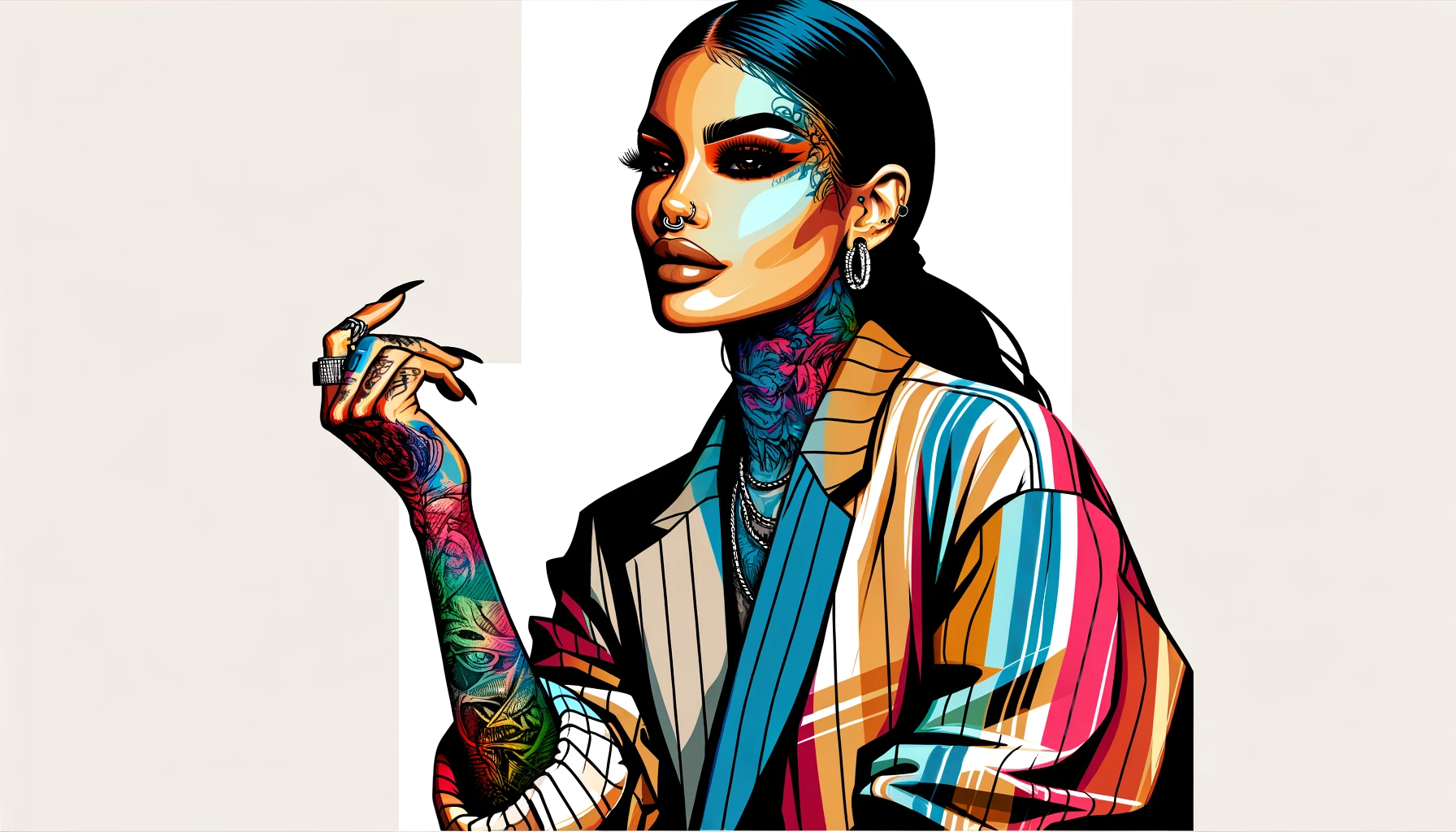Sharing is caring!
Getting a tattoo is a big decision, one that stays with you for a long time.
Many people love the unique and creative designs they can choose, but it’s important to remember that tattoos aren’t for everyone.
Before heading to a tattoo studio, it’s worth knowing some of the less glamorous aspects of getting inked.
Tattoos have certain drawbacks that might not be obvious at first.
These can include potential health risks, how the tattoo will age over time, or even how it might affect your job or social life.
Taking the time to understand these factors can help make sure you’re ready for any challenges that come with having a tattoo.
So, before making that permanent mark, consider these ten downsides to having a tattoo.
Understanding the full picture will give you a better idea of what to expect and help you make the best choice for your body and lifestyle.
1. Career Limitations
Sometimes, having a tattoo can affect your job opportunities.
Certain workplaces have strict rules about visible tattoos, especially in professions that involve dealing with clients face-to-face.
Employers might worry that tattoos do not fit the professional image they want to project. This can limit the types of jobs you can get or even impact your chances of getting hired at all.
Additionally, if you decide to switch careers later on, a visible tattoo might pose new challenges in fields you hadn’t considered before.
While attitudes towards tattoos in the workplace are changing, not all companies are accepting yet.
It’s something to think about if you’re planning a career in an industry where appearances are closely linked to professional standards.
[Also Read: What Happens If You Put Blue Hair Dye Over Green Hair?]
2. Social Perception

Tattoos can also change how people see you. In some cultures or older generations, tattoos might still be seen as inappropriate or linked to negative stereotypes.
People might make assumptions about your personality or lifestyle based solely on your ink, which isn’t fair but happens.
This can affect personal relationships, especially with those who have strong opinions about tattoos.
On top of that, depending on what your tattoo represents, it could attract unwanted attention or questions that make you uncomfortable.
It’s important to consider not just what your tattoo means to you, but also how it might be perceived by the wider world.
Even as society becomes more accepting, these perceptions can still influence your social interactions.
3. Long-Term Regret
Over time, your feelings about your tattoo might change.
What feels like a great idea now might not hold the same meaning for you in 20 or 30 years.
As people grow, their tastes and perspectives change, and a tattoo that once seemed perfect can become something you regret.
The process of removing tattoos is not only costly but also painful and can take multiple sessions depending on the size and colors of the tattoo.
Moreover, even with the best tattoo removal technology, some marks or scars might still remain.
So, the decision to get a tattoo isn’t just about today but should be considered in the context of your future self.
Will you still want that design on your skin decades from now? This is a big decision, especially for large or highly visible tattoos.
4. Health Risks

Getting a tattoo involves breaking the skin with needles, which carries health risks. The biggest worry is infection.
An unclean tattoo shop or equipment can lead to serious infections like hepatitis or even MRSA, a type of staph infection that’s hard to treat.
These health risks require careful consideration when choosing where and from whom to get a tattoo.
Another concern is allergic reactions to tattoo ink. Not everyone knows how their skin will react to the ink until after the tattoo is done.
Some people might experience itchiness, swelling, or other allergic symptoms, which can be long-lasting and uncomfortable.
Always ask about the types of ink used and consider a patch test if you have sensitive skin.
5. Maintenance and Aging
Tattoos can fade and spread over time. The crisp lines and vibrant colors you see right after getting a tattoo might not last forever.
Sun exposure, aging skin, and lifestyle choices can all affect how a tattoo ages.
You might find yourself needing touch-ups to keep it looking fresh, which can be additional time and expense.
As your skin ages, it loses elasticity and changes texture. A tattoo that looked good on tight, youthful skin might look different as wrinkles and sagging develop.
This can lead to dissatisfaction with how the tattoo looks as you get older, requiring more maintenance or correction than you initially thought.
6. Limitations in Medical Imaging and Treatment
Tattoos can sometimes interfere with medical procedures.
For instance, if you need an MRI (Magnetic Resonance Imaging), tattoos containing certain metal-based inks can react to the MRI’s magnetic fields.
This reaction can cause swelling or discomfort during the scan, which can be a problem if you have large or numerous tattoos.
In other medical treatments like surgery, tattoos can obscure signs of disease or conditions on your skin, making diagnosis more challenging.
Doctors need a clear view of the skin, and tattoos can sometimes hide changes that are important indicators of health issues.
7. Impact on Athletic Performance

For athletes, tattoos could potentially impact performance.
The healing process requires that you avoid certain physical activities to prevent infection and ensure proper healing.
This could mean taking time off from rigorous training sessions, which can be a setback if you’re preparing for competitions or events.
Additionally, there’s a small chance that sweat and friction could irritate a new tattoo during intense physical activity.
Such irritation can prolong the healing process and might even lead to complications if not properly managed.
Athletes need to consider the timing of getting a tattoo and its placement to minimize any negative effects on their training and performance.
8. Impact on Skin Sensitivity
Tattoos can increase skin sensitivity in the area where they’re applied.
The process of tattooing involves needles and ink, which can lead to a permanent change in how sensitive your skin is to touch, pressure, or even temperature changes.
Some people find that their tattooed skin feels different and is more prone to irritation or discomfort from everyday things like clothing rubbing against it.
Over time, the affected area might also show signs of skin conditions like eczema or dermatitis, especially if you have a predisposition to skin allergies or sensitivities.
It’s important to consider how a tattoo could affect the long-term health and comfort of your skin, particularly in areas where the skin is naturally more sensitive.
9. Potential for Regret Due to Impulsive Decisions
Many tattoos are the result of impulsive decisions, which can lead to regret later on.
Sometimes people choose designs, locations, or sizes that they later wish they had thought through more carefully.
As interests and lifestyles change, a tattoo that once seemed like a great idea might no longer fit with your sense of self or how you want to be perceived by others.
Dealing with tattoo regret can involve costly and painful removal processes, which aren’t always completely effective and can leave behind scars.
Before getting a tattoo, it’s crucial to take your time to really think about your choice and make sure it’s something you will be happy with for many years to come.
10. Difficulty with Coverage and Concealment
Depending on the location and size of a tattoo, you might find it difficult to cover or conceal it for certain professional or formal occasions.
Large tattoos on the arms, neck, or face can be particularly challenging if you find yourself in a job or social situation where tattoos are frowned upon or deemed inappropriate.
This can lead to needing special makeup or clothing that can effectively cover the tattoos, which can be inconvenient and expensive.
It’s important to think about your future career and social interactions when deciding on a tattoo, especially in visible areas that might be hard to conceal.
Sharing is caring!
